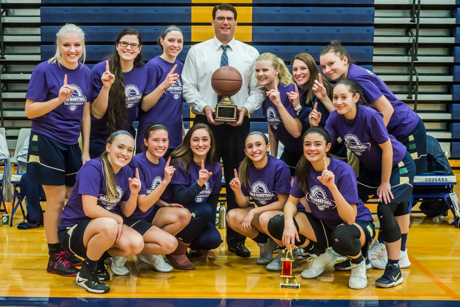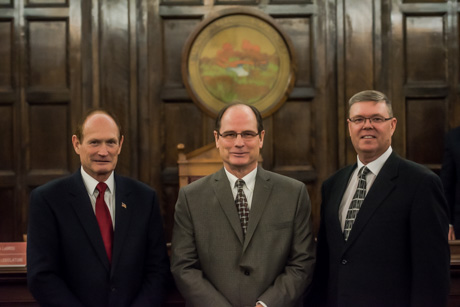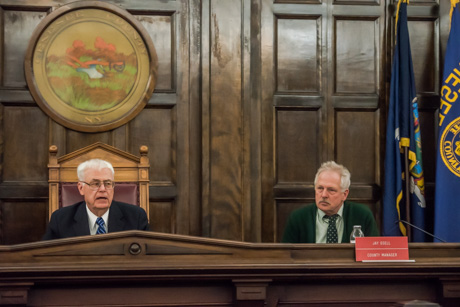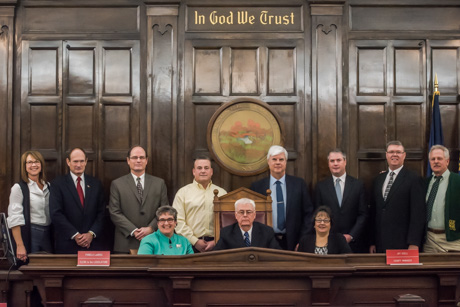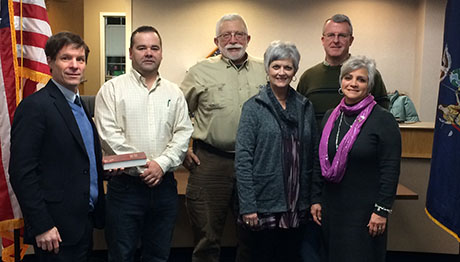GCC History Club announces spring lecture series lineup
Press release:
The Genesee Community College History Club is excited to release its spring Historical Horizons Lecture Series lineup! The series provides the community with access to renowned authors and historians as they take a deep look at the events and movements that have shaped our nation's history.
"The spring series line up will provide very unique perspectives on bloody battles and war, the Trail of Tears, and immigration," says GCC's Associate Professor Derek Maxfield. "This series is sure to inform and even entertain."
All lectures in this series begin at 7 p.m. in room T102 of the Conable Technology Building. All lectures are free and open to the public.
Tuesday, Feb. 6 / Medina Campus / Maple Ridge Road, Medina
Author Kevin R. Pawlak will discuss his book "Shepherdstown in the Civil War: One Vast Confederate Hospital." During the Civil War the small town of Shepherdstown, W.Va., was suddenly flooded with Confederate soldiers wounded in battle. Homes and churches transformed into triage centers and in all, the town, into "one vast hospital."
Wednesday, Feb. 7 / Batavia Campus / Room T102
Kevin R. Pawlak will join us again to present "The Jewels of War: Robert E. Lee, George B. McClellan, and the Battle of Antietam." Pawlak is also the director of education for the Mosby Heritage Area Association in Virginia. The Battle of Antietam is America's bloodiest single day. In totality, 12 hours of fighting on Wednesday, Sept. 17, 1862 left approximately 23,000 casualties. During this lecture, Pawlak will assess the dramatic events of the battle from the unique perspective of the commanders on the field.
Wednesday, April 4 / Batavia Campus / Room T102
GCC adjunct professor Danny Hamner will present "The Removal Crisis of 1832: How Nationalism, Political Ambition and the Electoral College Shaped the Trail of Tears." Often, the "Trail of Tears" is remembered as the inevitable tragedy of an indigenous people swept aside by the rising forces of modern America. While there certainly were large historical forces transforming America in the early 19th century, the removal crises of the period were ultimately shaped by the personalities, politics and needs of the movement. The mix of personal ambitions and zealous nationalism linked the destiny of the Cherokee Nation to Henry Clay's presidential aspirations with catastrophic but not inevitable results.
Wednesday, May 2 / Batavia Campus / Room T102 (Rescheduled from 12/6/17)
Orleans County Historian Matthew R. Ballard, MLS will present "Fear of the Unknown: Creating the Illegal Immigrant in 19th Century America." Immigration to the United States is a relative topic in current events; however, the establishment of the "illegal immigrant" only dates back to the turn of the 20th century. In the earliest years of immigration, Europeans were accepted without restriction, but an influx of new immigrants during the latter half of the 19th century raised concerns about political impacts on American society. Uncertainty and unfounded fears created excessive restrictions focused on limiting access to specific ethnic/ racial groups, religious groups, the disabled, the infirmed and those likely to become a "public charge."








